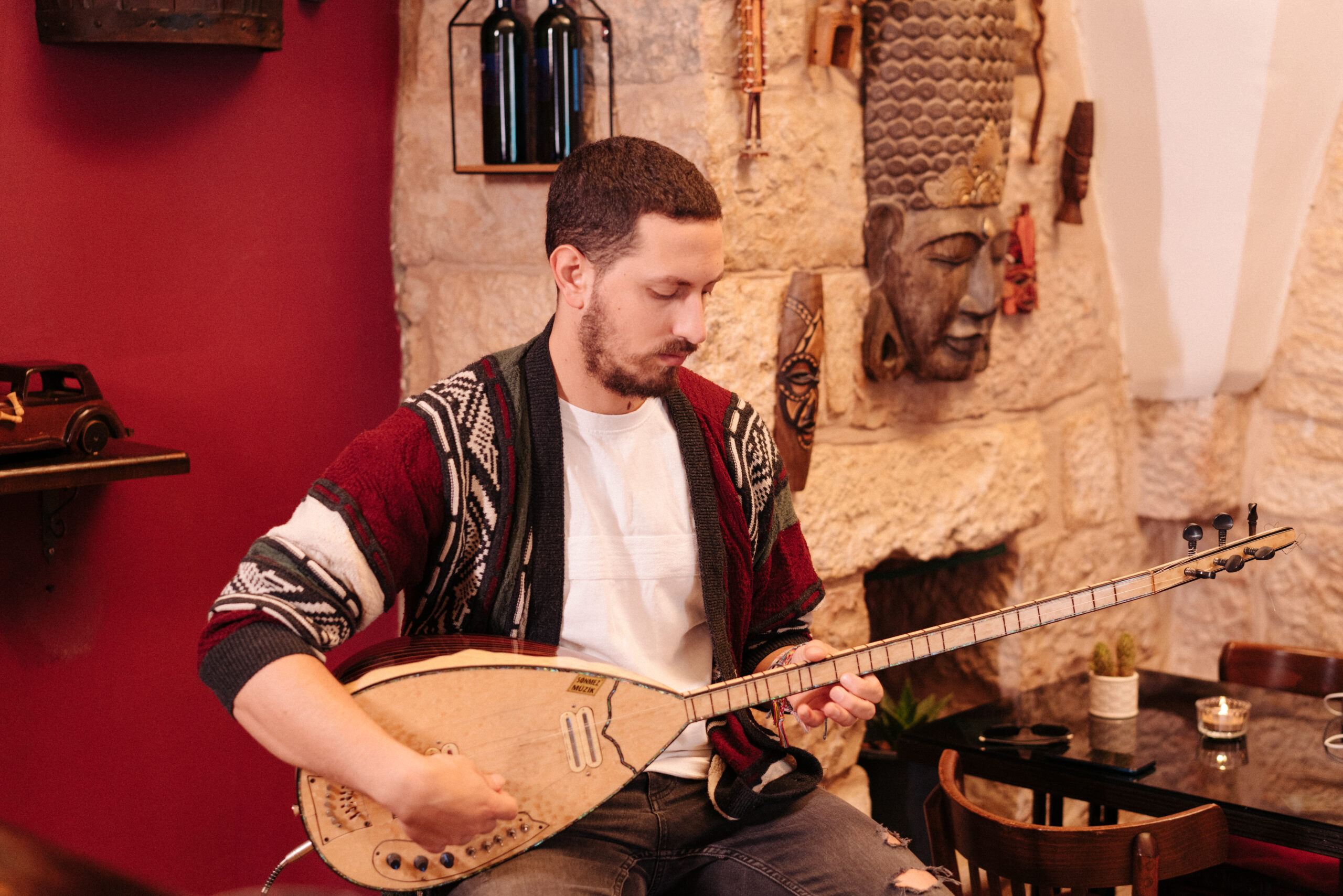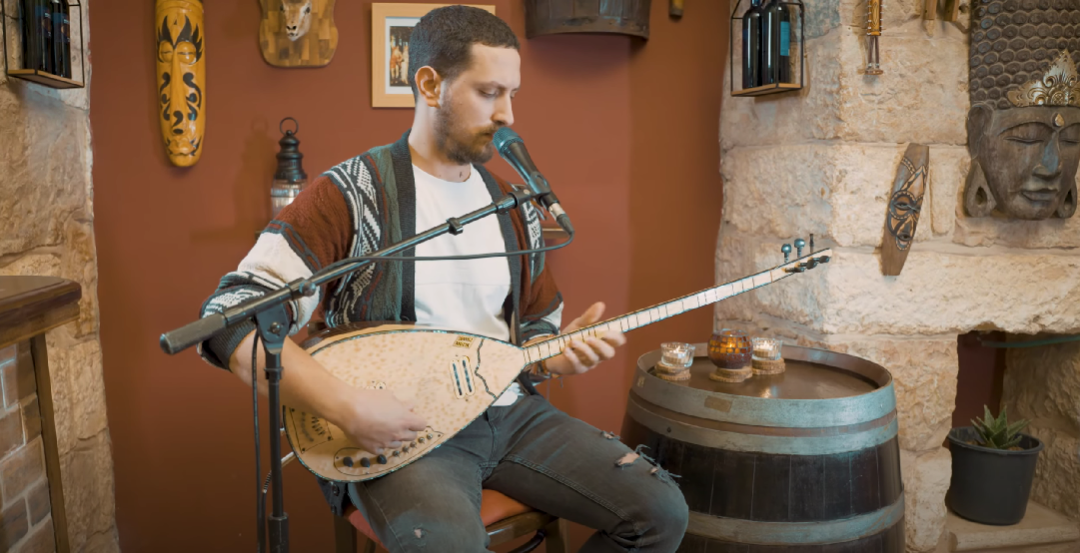Bethlehem is a city in the central West Bank, of Palestine. It’s about 10km south of Jerusalem and according to Christianity (the Gospels of Matthew and Luke), it is the birthplace of Jesus.
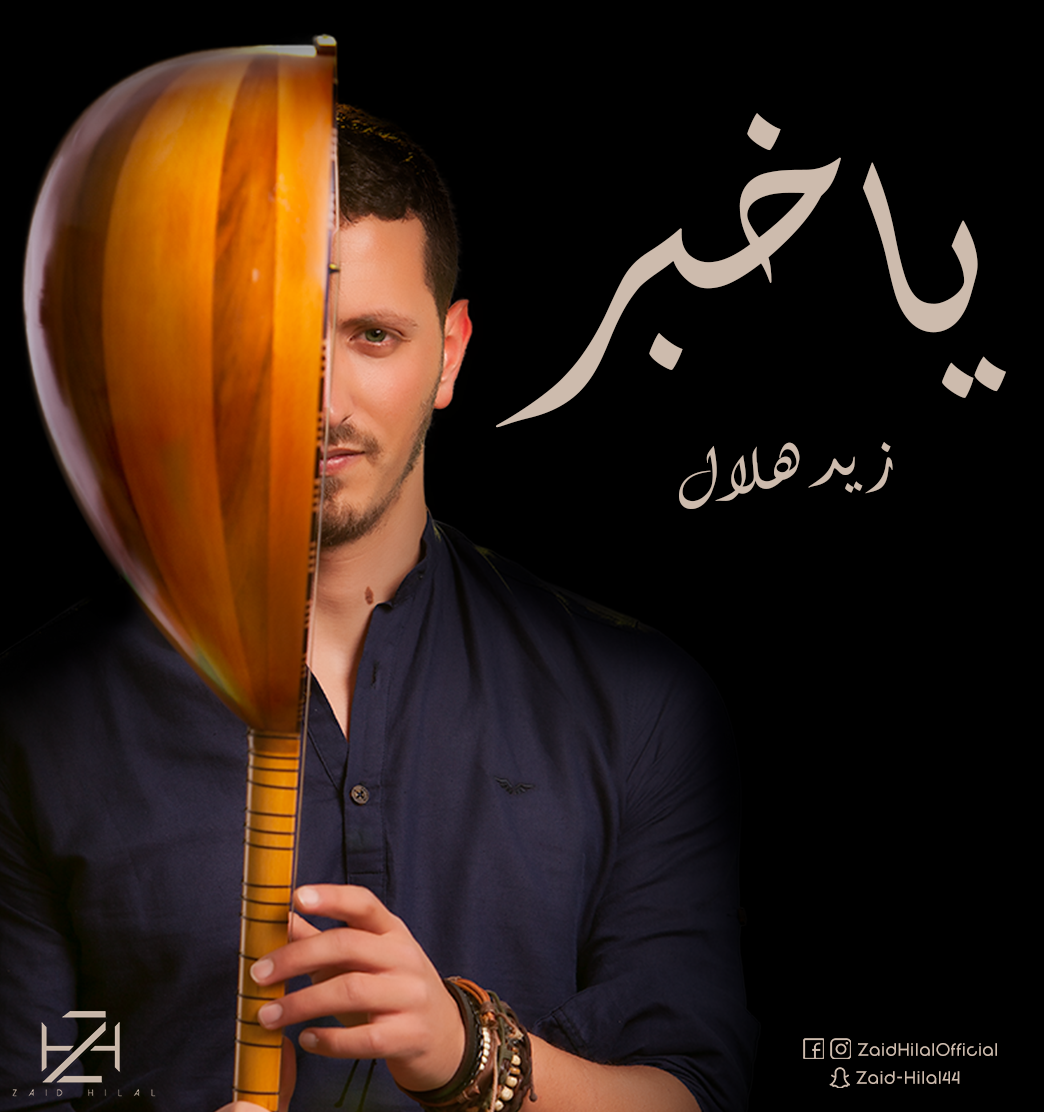 With a Muslim majority as well as a Palestinian Christian community, Bethlehem is encircled by Israeli settlements and the Israeli West Bank barrier, which separates both Muslim and Christian communities from their land, their livelihood, and each other.
With a Muslim majority as well as a Palestinian Christian community, Bethlehem is encircled by Israeli settlements and the Israeli West Bank barrier, which separates both Muslim and Christian communities from their land, their livelihood, and each other.
It is no small feat that Delia Arts Foundation was able to pull off a live recording at a venue called The Barrel, featuring the artist Zaid Hilal. As an outsider, to listen to Zaid Hilal speak, or even to watch him in the latest Delia Sessions video, you wouldn’t think that turmoil and conflict surround him in Palestine.
As an outsider, you may not even be able to tell whether he is Christian or Muslim. Indeed, with a long beard and more flowing hair, he’d be a dead ringer for the archetype of Jesus that the west has come to portray over the centuries. His eyes are piercing, his words considered, his music sublime.
The point is that Zaid Hilal is everyman. We are all journeying to and from the city of our birth, hoping to find ourselves along the way.
“I believe art is the best instrument that can help make our voices heard. Art is the best tool you can use to raise your voice as a human being”, says Zaid.
“I like that we speak up as Palestinians. As people who love, who have social difficulties, and political problems as well.”
Zaid also speaks of his part in the Delia Sessions:
“Gaining exposure means a lot to me especially when the social media requirements are so hard for me to keep on track. Recently artists have to be active most of their time to position themselves among others, so I believe in programs like Delia Sessions, which focus on the music.”
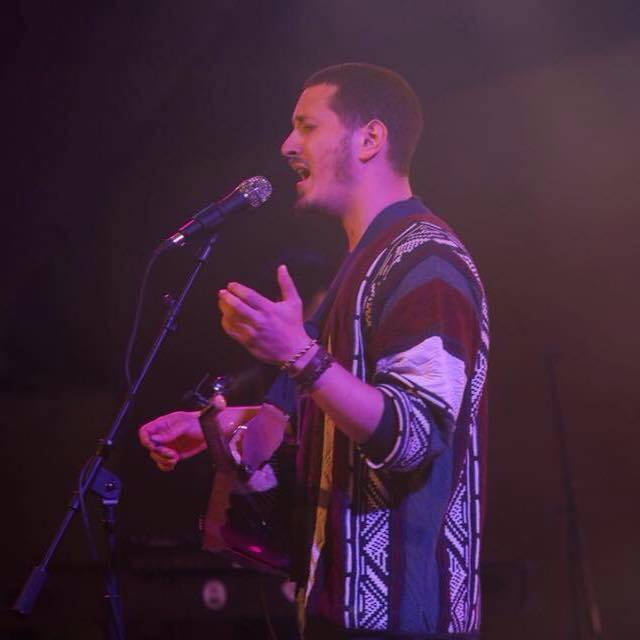 “In the video, I am playing an Instrument called Bozouq or Baglama. I have changed the tuning of it to play chords and sing. I played the Oud instrument when I was 10 years old, and then I loved the Bozouq instrument and learned it in 2002.
“In the video, I am playing an Instrument called Bozouq or Baglama. I have changed the tuning of it to play chords and sing. I played the Oud instrument when I was 10 years old, and then I loved the Bozouq instrument and learned it in 2002.
I love the video – everything is simple, as it should be. The team of Delia here is amazing and I was pleased to work with them.”
In Wassil Salam (وصل سلام) Zaid sings of sending “peace across continents” and of people, like birds, “breaking boundaries”. As his strumming on the Bozoug fastens, you get a sense of a man who is free – despite being in a country where “water is always cut off”, “green lands do not exist anymore”, and “the helping hand is disloyal”.
In Ya Rakeb Al Mooj (يا راكب الموج) Zaid sings about a wave surfer who must decide his own fate, climb that mountain again, and “search until you reach the depth of the universe.” He might be singing about himself. He could be singing for all of us.
His music soars while his words are scathing. There is a hope to his message, though. After all, he has journeyed here to Bethlehem and in an ideal world, it shouldn’t matter where he is from.
Premiering on the 31st of March 2022, and with well over 41000 views on YouTube already, Samah Mustafa’s Delia Session features the songs Taboo (تابو) and Banat Al Arab (بنات العرب).
If you haven’t had the chance yet, please enjoy our feature on Samah Mustafa. A live-looping artist, Samah combines the tradition of Palestinian folk song with a modern electronic beat and sonic reverberation, using her voice as an instrument to heal and echo feeling over the loops she creates.
Banat Al Arab (بنات العرب) is a song that was written by an old woman in her village and exploded as a traditional folk song many decades ago. It is about the quality and hospitality of women, the “pride of our families”.
“It literally means ‘daughters of Arab’. Composed by myself, the lyrics are by Palestinian poet and preserver of folklore, Fathiyya Khatib. I had the need to give a spotlight to the good qualities, the power, and the lovely habits from the tradition that Arabs have, and they still keep, especially regarding Arab women. In art we express pain, we ask for justice, and with that we should give space to the strength and power we have. The song is written and composed in a folk style, but is still modern.
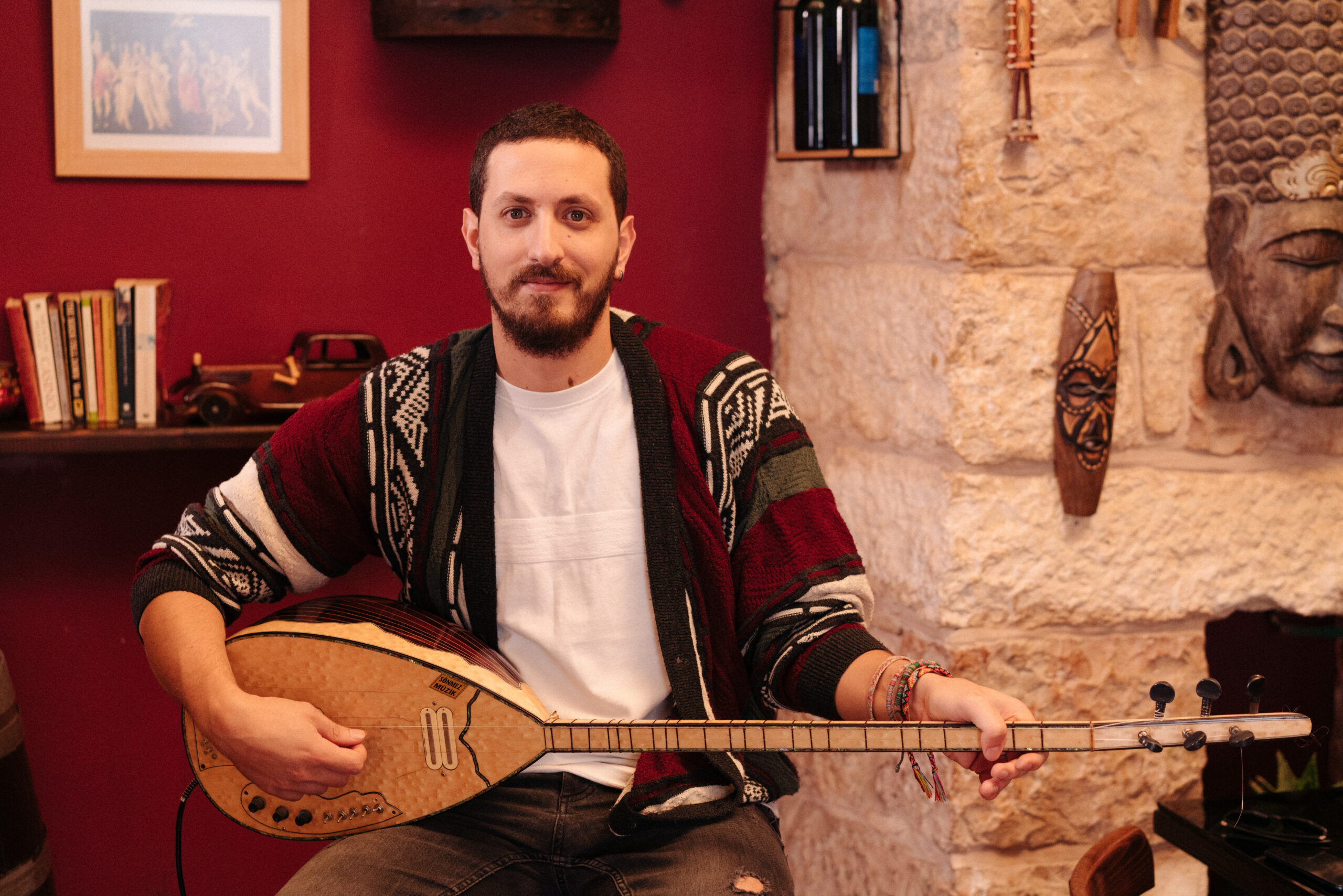 “Taboo (تابو) is more, well, taboo, hauntingly echoing lines like “What would people say, what would they tell?” Explaining the inspiration behind the original song, Samah expresses her feminine independence:
“Taboo (تابو) is more, well, taboo, hauntingly echoing lines like “What would people say, what would they tell?” Explaining the inspiration behind the original song, Samah expresses her feminine independence:
“Taboo is different to Banat Al Arab, as here I am saying that we (women) should express our feelings. For me, as a female raised in a conservative Islamic environment, I express my feelings through music. We women have lots of good qualities, lots of power.”
“When writing the song I asked female friends and women I know ‘what is the most comments and words that you have heard in your life especially from your family?’ With those sentences and ideas I created TABOO – it’s about expressing feelings or ideas that is not acceptable in the community.”
Both Samah and Zaid were fortunate to be able to learn to express themselves through music, having learned to play instruments when they were children. For both of these featured artists, it is clear to see the impact that music has had on their lives, as well as those who are fortunate enough to hear them play.
As opportunities to perform start to open up, audiences can consider themselves fortunate to hear these talented Palestinian musicians perform.
Please reach out to: hello@delia-arts.org or visit www.delia-arts.org if you know of other Palestinian musicians that deserve to be recorded for the Delia Sessions.
